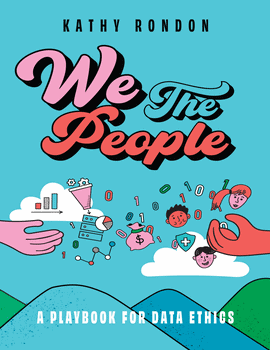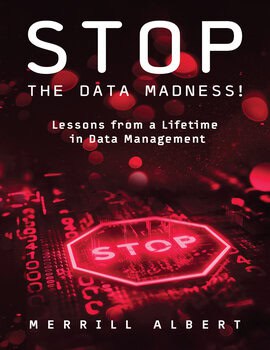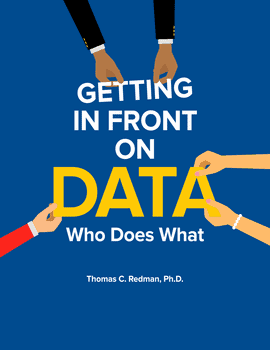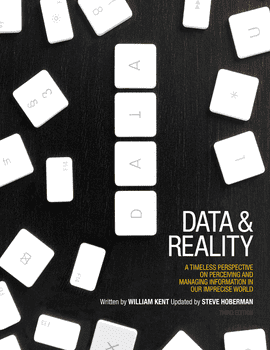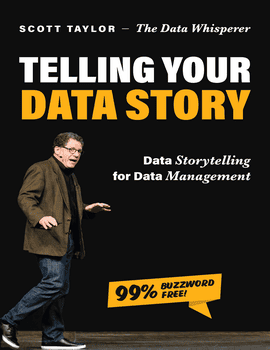We The People
We The People: A Playbook for Data Ethics in a Democratic Society, by Kathy Rondon
Just because we can do something, does that mean we should do it?
Topics
Introduction
Where to look for an ethical framework
Ethics, law, and policy
A few disclaimers
Chapter 1: We The People
Who and what do we count and why?
What are the ethical questions?
Chapter 2: In Order to Form a More Perfect Union
Transparency
Privacy
Accountability
What are the ethical questions?
Chapter 3: Establish Justice
Data collection
Data use
What are the ethical questions?
Chapter 4: Ensure Domestic Tranquility
Consistent legal and regulatory requirements
Need for parameters
“Optional” services
What are the ethical questions?
Chapter 5: Provide for the Common Defense
Need for secrecy
Classification of information
Culture
What are the ethical questions?
Chapter 6: Promote the General Welfare
Social rights
Education
Health
What are the ethical questions?
Chapter 7: Secure the Blessings of Liberty
Transparency
Accountability
Analytical rigor
Fairness
Protection
While embracing the promise of technological advances and data-driven decision-making, a democratic society also must acknowledge and address potential harms to individuals, populations, and society as a whole. In this data ethics “playbook,” data governance practitioner and educator Kathy Rondon lays out potential problems in our collection, sharing, use, and retention of data; how those problems can negatively impact more than just an individual person’s privacy; and the questions we should be asking of ourselves and our data practices in order to “secure the blessings of liberty to ourselves and our posterity.”
Applicable to both public sector and private sector entities operating in a democratic society, the playbook is both aspirational and actionable, offering a conceptual framework rather than an “ethics compliance checklist.” Using the goals of the Preamble to the U.S. Constitution to frame the conversation, the reader will come to understand how leveraging big data can promote democratic values…and how it can undermine them when ethical considerations take a back seat to unfettered data collection and use.
Employing a case study model to delve into where missteps, usually unintentional, have occurred in data ethics practices, the author guides readers through the questions they should ask when undertaking a data-focused project. She also points out avenues for advocacy that readers can consider to promote better data-related laws, more effective organizational data policies, and well-articulated ethical frameworks. The result is a current and actionable approach to data ethics.
About Kathy
Kathy Rondon is a data governance practitioner, educator, and thought leader with over 30 years of experience in data and information management. Her professional focus has long been data governance in the public sector, where she has spent much of her career. For public sector organizations, she has set up policies and procedures covering the full data lifecycle; conceptualized, developed, and delivered data literacy training programs; and facilitated data sharing agreements covering highly sensitive data assets.
Kathy is a perennial speaker at data governance conferences and was a recipient of the Data Management Association International’s 2021 award for Excellence in Data Management for her work on data governance education. She holds an undergraduate degree in English Literature, a graduate degree in International Affairs, is a certified Data Governance and Stewardship Professional (DGSP), and is a former Board member of the Institute for the Certification of Computing Professionals (ICCP).
Faculty may request complimentary digital desk copies
Please complete all fields.
